Executive election candidates for 2025 and 2026
The online election by members is open from 16th December 2024 to 15th January 2025. All eligible EASA members will be sent a ballot by end of 16th December. Please check your email (also spam folder). If it seems to you that you have not received your ballot, please let us know easa(at)nomadit.co.uk
Members are asked to elect five candidates from those listed below to join the Treasurer and the Secretary on the committee.
The handover meeting for the new Executive Committee will take place 10-11 March 2025 in Poznan. Those standing for election are asked to please now book those dates in their diary so as to be available, if elected.
The candidates are listed below, in alphabetical order by surname. Click on the names to view their profiles.
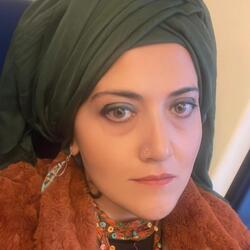
Hayal Akarsu is Assistant Professor of Cultural Anthropology at Utrecht University. Previously, she was a Junior Research Fellow in the Crown Center for Middle East Studies and Lecturer in Anthropology at Brandeis University. She obtained her PhD in 2018 from the School of Anthropology at the University of Arizona, and her MA in 2012 from Near Eastern Studies at New York University (NYU). From her current book project on police reforms to her ongoing research on digital policing and environmental crimes, Akarsu explores how various imaginations of risk and threat securitize and police different realms of social and natural life. As a co-opted member of the current EASA Executive Committee, she has been instrumental in developing the EASA Mentoring Program and actively contributes to EASA's Working Group on Human Rights and Academic Freedom, working towards making EASA a more inclusive space. If elected, she aims to continue building upon these initiatives to further strengthen EASA's commitment to inclusivity, critical thinking, anthropological ethics, and academic freedom.
Nominating member: Rebecca Bryant (Utrecht University, Netherlands); Supporting member: Prof. Ruba Salih (University of Bologna, Italy)
View profile in EASA's membership directory.

My anthropological roots lie in anticolonial work that emerged from fieldwork in West Africa. I combine public anthropology methods with pressing matters of our time, such as environmental issues and aftermaths of imperial-colonial projects. As a precarious scholar, I am involved in anti-precarity organizing in Germany with NGAWiss. I have held positions at Goethe Universität Frankfurt, Humboldt-Universität zu Berlin and, from 2025 on, I will be based at the University of Bremen. Within the EASA exec, I would like to address questions of academic freedom in light of current policies across Europe and in Germany, liaising with the relevant EASA committees and working groups. I would furthermore like to support visa applications for non-European passport holders. This has previously been an issue especially for Global South scholars. I plan to initiate a working group that focusses on academic publishing, review culture, creative formats and funding for independent publications. A matter that is dear to my heart and that I have recent first-hand experience with is support of early career scholars, for whom I would like to form a network that offers guidance in first things such as publishing, job and funding applications or dealing with power politics in academia.
Nominating member: Prof. Dr. Magdalena Buchczyk (Humboldt-Universität zu Berlin, Germany); Supporting member: Dr. Nasrin Khandoker (University College Cork, Eire / PrecAnthro)
View profile in EASA's membership directory.
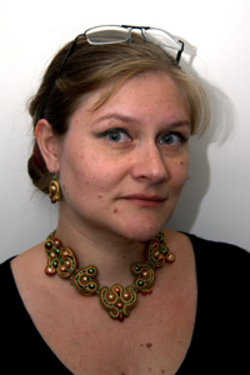
A member of PrecAnthro since its beginnings in 2016 and a former co-convenor of two EASA networks, I strived to amplify the voices of anthropologists in precarious positions and to address contemporary issues that require our engagement. Since 2023, I have served as EASA president.
Together with the current executive committee, I launched initiatives that shaped EASA’s future as a dynamic and inclusive association. We established an EASA summer school, launched a mentorship program, and developed a strategic vision for EASA’s growth, inclusivity, and relevance. We strengthened dialogue with national associations, enlivened our digital presence, and supported the establishment of a working group on academic freedom and human rights.
At the 2024 EASA conference, we made important strides in supporting precarious scholars, those with disabilities, and those balancing caregiving responsibilities with engagement in our association. We introduced childcare, shuttle transport between conference locations, and supported more than 20% of precarious scholars’ applications for financial aid – the highest proportion so far.
If re-elected, I will build on the foundations laid by the current team in mentorship, support for precarious scholars, democratising the association by establishing working / thinking groups in strategic areas, and strengthening the voice of public anthropology in Europe.
Nominating member: Dr. Fiona Murphy (Dublin City University, Eire); Seconded by: Dr. Martin Fotta (The Institute of Ethnology CAS, Czech Republic)
View profile in EASA's membership directory.
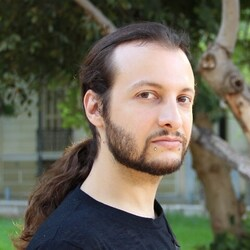
My professional journey includes academic roles in France (EHESS, Paris), Italy (Universita Ca’Foscari, Venezia), Greece, and the UK (St Andrews University), alongside working as a UNESCO Consultant, Dive Instructor, and Primary School Teacher, showcasing how anthropological skills apply across diverse contexts. I co-designed an educational program introducing Greek high school students to anthropology, reflecting my dedication to promoting the discipline beyond academia. I have served as co-convenor for the EASA Mediterraneanist Network (six years) and the Europeanist Network (three years). As a founding member of the Association of Social Anthropologists of Greece, I was elected to its executive board twice. In all events I co-organised, I secured funding for early-career academics and PhD students to participate in events and publications.
As a first-generation academic who has faced precarity, my experience as a board member and co-ordinator will help to support colleagues in similar situations. I’ll highlight anthropology’s relevance across diverse sectors, further strengthening its impact and accessibility and emphasising anthropologists’ transferable skills to enhance employability. This will ensure the long-term growth of anthropology by attracting more students. Collaborating with National and International Anthropological Associations, we will advocate for governments and universities to create more positions, find ways to stop universities from demolishing departments, and focus on supporting fired anthropologists.
Nominating Member: Prof. Dimitrios Theodossopoulos (University of Kent, UK); Supporting Member: Prof. Thomas Hylland Eriksen (University of Oslo, Norway)
View profile in EASA's membership directory.
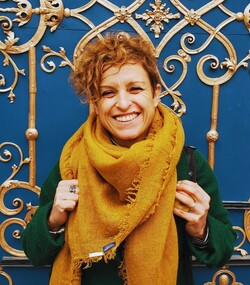
Italian-born and raised, I work as an Associate Professor of Anthropology at the University of Barcelona. I began my journey in anthropology as an applied ethnographer in the business sector and later transitioned to an academic framework to investigate tourism and mobilities. My current research explores the intersection of human mobilities and the digital economy.
A member of EASA since 2012, I co-convened AnthroMob, the Anthropology and Mobility Network (2018-2022) and was in the organizing committee for EASA 2024 in Barcelona. Locally, I was a member of the Executive board of the Catalan Institute of Anthropology (2019–2022).
If elected to the EASA Executive Committee, I aim to contribute to two key areas. First, I would work to strengthen EASA's role as a meeting platform for anthropologists across diverse professional settings, fostering recognition from those working both within and beyond Anthropology departments, as well as practitioners in various industries. Second, I would lobby national and international institutions to advocate for increasing the visibility of our discipline across public, scientific, educational, and political domains, especially at a time when many anthropology departments are under threat or facing closure. In an era marked by global crises, growing inequalities, and rapid technological transformation, I firmly believe that anthropologists' critical thinking matters more than ever.
Nominating member: Noel Salazar (KU Leuven, Belgium); Supporting member: Natalia Bloch (Adam Mickiewicz University Poznań, Poland)
View profile in EASA's membership directory.
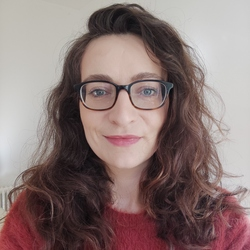
Two years ago, I ran for election on an agenda that prioritized the rising mental health crisis. I am running for reelection to continue:
- the work of PrecAnthro on academic precarity and anti-precarity organizing, particularly as it pertains to mobility and to international staff and students;
- addressing the rising mental health crisis;
- advocating with EU policy-makers on the value of anthropology and on research funding and regulations;
- the work on ethics and scientific integrity within EASA;
- revalorising teaching within hiring, EASA, and the discipline.
Concretely, I would like to build on the collaboration established with the Researcher Mental Health Observatory (ReMO): first, to publish a report on mental health struggles within social sciences, and second, to collaboratively draw guidelines that would promote healthier and thriving research cultures within anthropology, particularly within asymmetrical power relations (eg: supervisors-supervisees relationships). Moreover, building on our collaboration with ISE and EASSH, I would like to work towards establishing a sustainable working group on lobbying and advocacy within EASA that would ensure anthropology’s place at the (uneven) negotiating table. Thirdly, elaborating guidelines for the protection of scientific integrity and scholars reporting abuse would be a great next step for the EASA integrity committee.
Nominating member: Mariya Ivancheva (University of Strathclyde); Supporting member: Nadia Fadil (KU Leuven, Belgium)
View profile in EASA's membership directory.
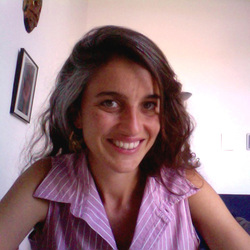
I am a social anthropologist, interested in emerging environmental issues and their political-economic implications, with a focus on the Mediterranean coasts. After training between Italy and France and obtaining my PhD in 2022, I have worked as a temporary lecturer and researcher in several French universities, mostly in interdisciplinary contexts.
My professional experience and my knowledge of different academic contexts can help in composing an executive committee aware of the complexities of the European anthropological panorama. I will do my best to represent the interests of junior researchers and will work to facilitate contacts between young scholars in different European countries. I am particularly concerned with the conditions of teaching and research, as well as the widening gaps between these two fields within European institutions. This issue calls for the creation of spaces for sharing practices, where professional and inter-generational exchanges can be promoted. I believe that EASA represents a crucial forum for thinking collectively and concretely about the articulation of these two essential and interconnected activities - teaching and research - as well as about the dynamics that characterize social science today.
I would enthusiastically contribute to these advancements by becoming a member of the next executive committee.
Nominating member: Valeria Siniscalchi (Directrice d'études de l'EHESS); Supporting member: Adam Kuper (The London School of Economics and Political Science)
View profile in EASA's membership directory.
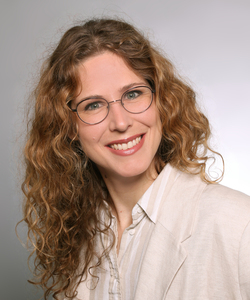
I am Assistant Professor in Social Anthropology at Adam-Mickiewicz University Poznań, Poland. Having been a long-term EASA member and a festival producer for seven years, I am glad to be part of the EASA2026 conference team in Poznań. My vision is to make EASA2026 an unforgettable, inspiring event that opens doors for new connections and brings us closer together – as critical, brave, and empathetic thinkers in solidarity against contemporary injustice and for shared futures.
I am a social anthropologist with a background in history, trained in Germany, France, Poland (MA), and the UK (PhD). My work concerns the afterlives of historical ruptures and trauma, with a focus on transnational mobilities, heritage, arts and film in Central and Eastern Europe and beyond. Longing and places of longing emerge as key concepts in my work. I am also exploring new avenues to rethink risk and uncertainty.
As EASA Executive Committee member, I seek to improve the conditions for the EASA community to practice what we preach - to be inclusive to colleagues, be loud when we speak to the public, be connected with each other, be thoughtful about students’ needs, be trained to face emerging challenges, be sustainable in our work routines.
Nominating member: Sharon Macdonald (CARMAH); Supporting member: Michał Buchowski (Adam Mickiewicz University)
View profile in EASA's membership directory.






